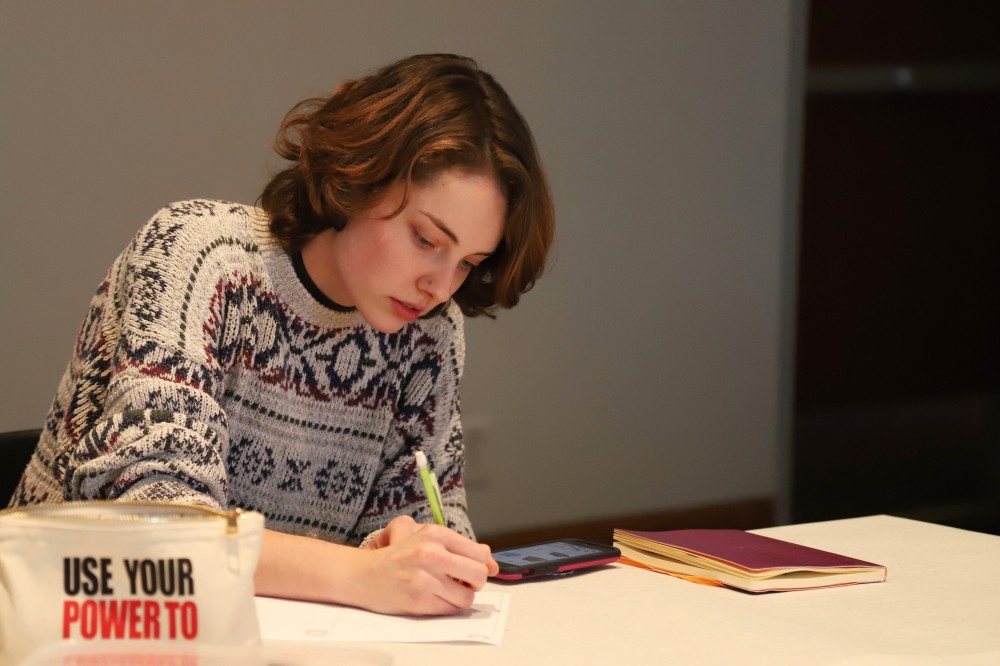An 11-by-7 inch poster holds the potential to lead movements and change headlines. Artist and activist Leon Wang shared this power of the poster with University of Minnesota students during a workshop at the Weisman Art Museum Friday.
The workshop was presented in conjunction with one of the museum’s current exhibitions “I Want To Make This Perfectly Clear.” The exhibition is a collection of political posters created by students at the University in the 1970s.
The WAM Collective helps organize a number of events at the Weisman throughout the year, including the workshop.
“Museums are bureaucratic institutions and so they tend to be slow-moving internally,” said Isabella Gold, a freshman studying art history and a member of the WAM Collective. “[The collective has] been talking about how can museums react to very fast moving political events that are happening and how can they be spaces for political dialogue.”
Wang’s poster-making workshop, along with the exhibition, created a visual, hands-on experience that opened up the door to free political dialogue.
He began by asking those in the room to yell out 30 themes or issues that resonated with them and wrote them on large posters on the wall. Each table had a box of coloring supplies, and one side of the room was lined with sheets of poster paper.
“Posters are just a vehicle,” Wang said. “It’s about taking your voice and whatever skills and … things you have at hand. … And how do you take that voice … and amplify it in a way that’s impactful and meaningful?”
The University alumnus began the workshop with a short presentation about his background as an artist and an activist — beginning with his poster making after the shooting of Philando Castile. Wang followed with various fast-paced artistic activities that pushed the attendees to think outside of the box and create with purpose.
“This is not just, ‘Oh we’re going to make some art,’ … No, this is art with purpose,” Wang said. “It’s highly intentional.”
Each activity’s quick pace — one giving students only three minutes to create a brand new poster from an existing poster — built on from the last one.
“It models the kind of events that happen in the real world,” said Ronnie Peterson, a senior studying linguistics. “So, [being able] to produce art that is both effective and meaningful for yourself … and … for somebody else at such a fast pace is definitely a skill.”

Audra Weigand, a senior studying political science and sociology, has used Wang’s work on social media, like his “#Justice 4 Philando” poster, and has seen firsthand the impact these 11-by-7 posters can have.
“I think it’s really cool to be able to actually connect with somebody whose work I’ve … interacted with,” Weigand said. “His pieces are very easy to understand and connect with so it’s been a really good experience to walk around and see all of the different posters.”
Wang’s workshop emphasized the intersections between being an artist and being an activist.
“We look at the status quo and we see that … the current system might not serve us — it might even hurt us,” Wang said. “How do we transform the current system? It’s that same sort of seeking transformation and progress, [artists and activists have] a similar kind of outlook.”
Even decades after the original posters from the exhibition were made, poster creation remains an accessible form of art and activism through which Wang hopes others will find a voice. He hopes workshops are just the first step.
“My thing with the poster workshop and kind of my work in general is I’m really hoping to activate each individual,” Wang said. “So hopefully through the poster workshop, they’ll go away feeling empowered.”









